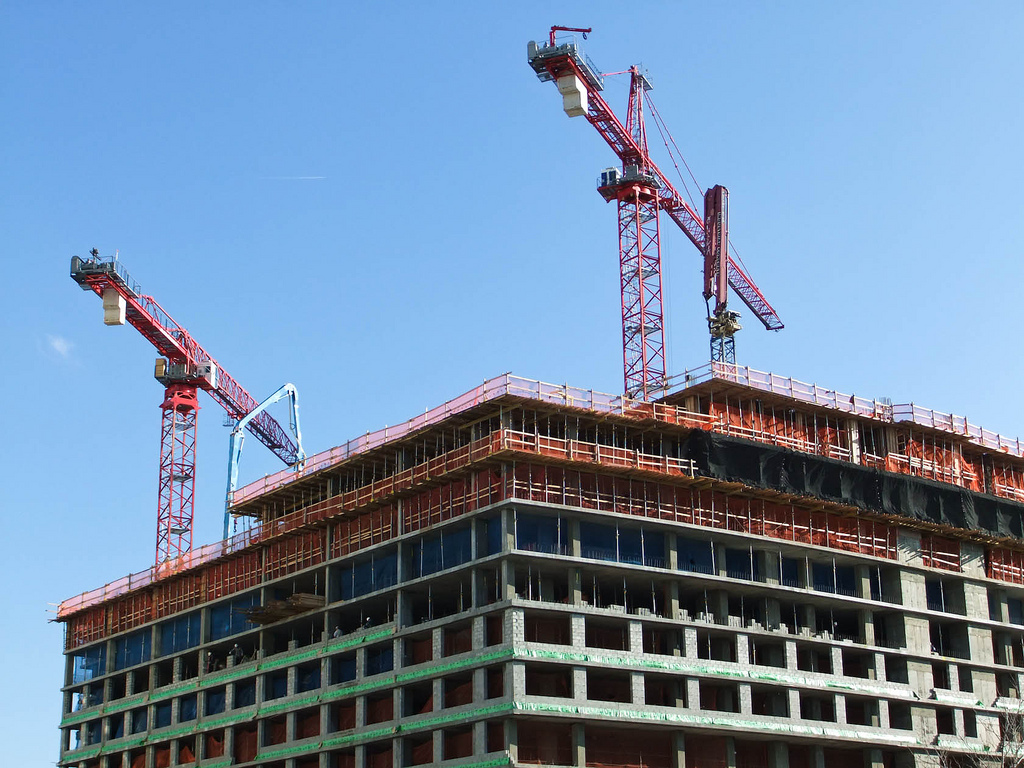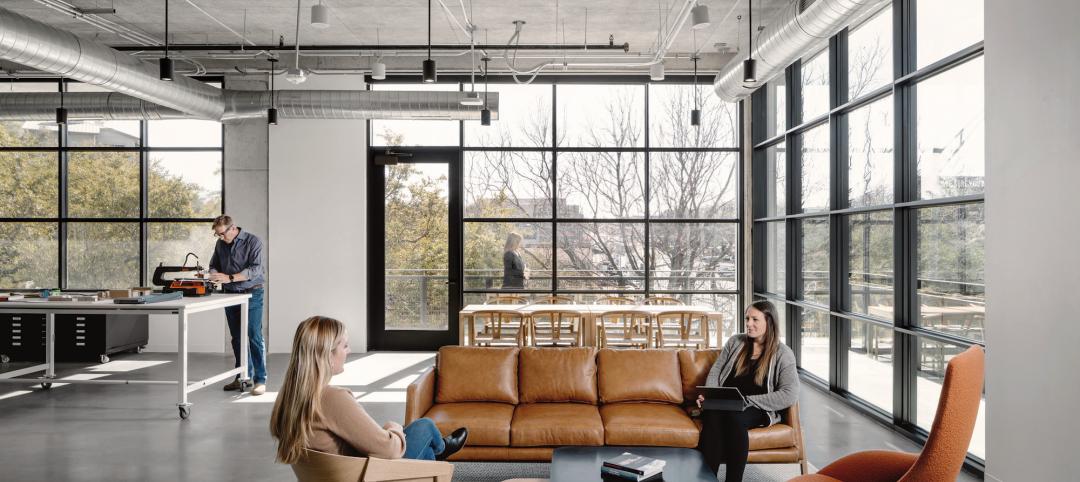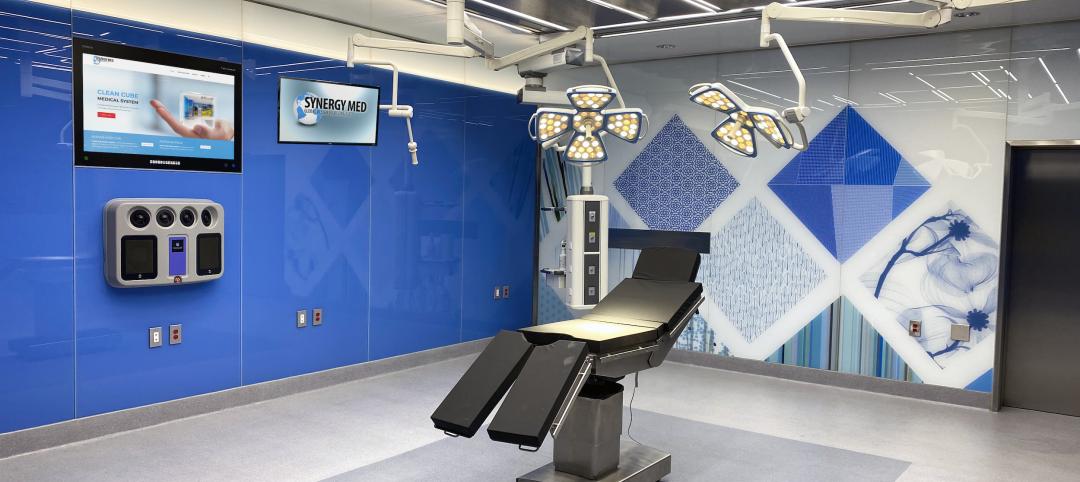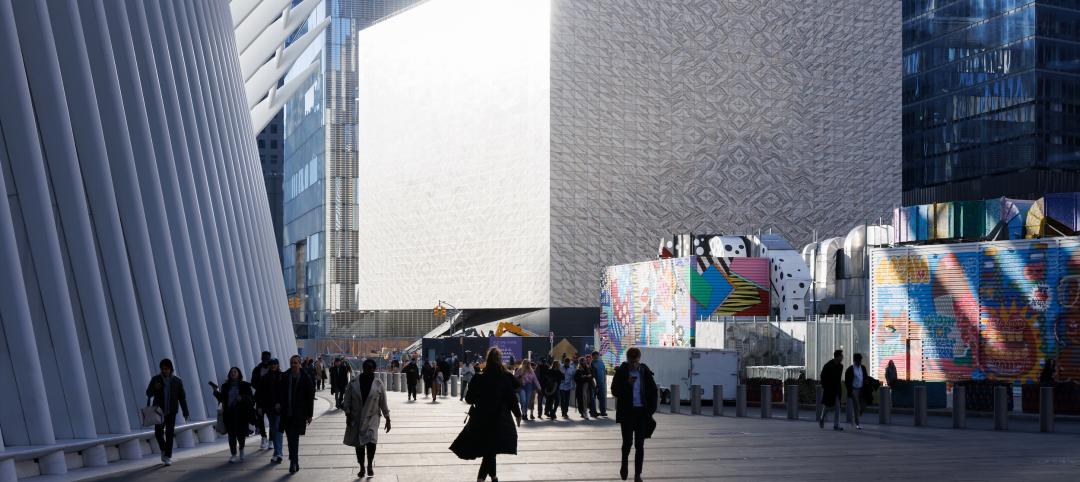The nonresidential construction sector continues at a steady pace despite a slight decline, according to the FMI Nonresidential Construction Index Report (NRCI) for Q3 2015. The index reflects the observations of a sample of the nation's construction industry executives.
FMI’s NRCI for Q3 2015 dropped 1.3 points to 63.6 from the previous reading of 64.9 in Q2. While the NRCI component for the overall economy dropped 6.3 points to 70.6 points this quarter, which is down from its peak, this component still indicates that panelists remain bullish about the economy.
Similarly, indicators for the economies where panelists do the most business stood at 73.3, indicating a strong outlook despite a slight 3.4 points slip from last quarter.
Highlights from the NRCI point to diverse forces driving the industry as we enter the last quarter of the year:
- Panelists’ Construction Business. Panelists’ views on their businesses are solidly positive with little changed from the last quarter.
- Nonresidential Building Construction Market. Although the nonresidential building construction market where panelists do business slipped 1.4 points to 75.0, this NRCI component remains in the optimistic range.
- Expected Change in Backlog. The measure of expected change in backlog dropped 3.1 points this quarter to reach 68.8, while current backlog remains at a solid 10 months.
- Cost of Construction Materials and Labor. The cost of labor continues to rise, though not greatly changed from the last quarter, at 12.5. Materials costs continue to be high, but slightly lower than last quarter. Both labor and material costs act to hold down the overall NRCI as costs increase.
- Productivity Low. The productivity component stands at 47.6, the lowest since 2008. Executives surveyed report difficulties in maintaining productivity while squeezed by rising material and labor costs.
International Debt Impacts
The NRCI Q3 report tallies executives’ opinions on the potential impact of the Greek debt crisis on their businesses. A third of respondents indicated no immediate or long-term impact was likely for their businesses, 25% were unsure and only 2% surveyed expected they would have to adjust their strategic plans to deal with the uncertain economy.
Business Changes Since Recession
All sectors within the construction industry continue their recovery since the financial crisis, as companies make adjustments to their businesses in the intervening recession. The NRCI Q3 report summarizes how business adapted during the recession. Among the strategies employed, greater selectivity regarding projects and clients tops the list, followed closely by greater use of technology for their businesses to drive productivity, stronger risk management, heightened productivity, and incorporating global geopolitical and economic conditions in decision making.
The full report is available here.
Related Stories
Hotel Facilities | Jul 21, 2023
In Phoenix, a former motel transforms into a boutique hotel with a midcentury vibe
The Egyptian Motor Hotel’s 48 guest rooms come with midcentury furnishings ranging from egg chairs to Bluetooth speakers that look like Marshall amplifiers.
Office Buildings | Jul 20, 2023
The co-worker as the new office amenity
Incentivizing, rather than mandating the return to the office, is the key to bringing back happy employees that want to work from the office. Spaces that are designed and curated for human-centric experiences will attract employees back into the workplace, and in turn, make office buildings thrive once again. Perkins&Will’s Wyatt Frantom offers a macro to micro view of the office market and the impact of employees on the future of work.
Healthcare Facilities | Jul 19, 2023
World’s first prefab operating room with fully automated disinfection technology opens in New York
The first prefabricated operating room in the world with fully automated disinfection technology opened recently at the University of Rochester Medicine Orthopedics Surgery Center in Henrietta, N.Y. The facility, developed in a former Sears store, features a system designed by Synergy Med, called Clean Cube, that had never been applied to an operating space before. The components of the Clean Cube operating room were custom premanufactured and then shipped to the site to be assembled.
Performing Arts Centers | Jul 18, 2023
Perelman Performing Arts Center will soon open at Ground Zero
In September, New York City will open a new performing arts center in Lower Manhattan, two decades after the master plan for Ground Zero called for a cultural component there. At a cost of $500 million, including $130 million donated by former mayor Michael R. Bloomberg, the Perelman Performing Arts Center (dubbed PAC NYC) is a 138-foot-tall cube-shaped building that glows at night.
Codes and Standards | Jul 17, 2023
Outdated federal rainfall analysis impacting infrastructure projects, flood insurance
Severe rainstorms, sometimes described as “atmospheric rivers” or “torrential thunderstorms,” are making the concept of a “1-in-100-year flood event” obsolete, according to a report from First Street Foundation, an organization focused on weather risk research.
Multifamily Housing | Jul 13, 2023
Walkable neighborhoods encourage stronger sense of community
Adults who live in walkable neighborhoods are more likely to interact with their neighbors and have a stronger sense of community than people who live in car-dependent communities, according to a report by the Herbert Wertheim School of Public Health and Human Longevity Science at University of California San Diego.
Contractors | Jul 13, 2023
Construction input prices remain unchanged in June, inflation slowing
Construction input prices remained unchanged in June compared to the previous month, according to an Associated Builders and Contractors analysis of U.S. Bureau of Labor Statistics Producer Price Index data released today. Nonresidential construction input prices were also unchanged for the month.
Government Buildings | Jul 13, 2023
The recently opened U.S. Embassy in Ankara reflects U.S. values while honoring Turkish architecture
The U.S. Department of State’s Bureau of Overseas Buildings Operations (OBO) has recently opened the U.S. Embassy in Ankara, Turkey. The design by Ennead Architects aims to balance transparency and openness with security, according to a press statement. The design also seeks both to honor Turkey’s architectural traditions and to meet OBO’s goals of sustainability, resiliency, and stewardship.
Affordable Housing | Jul 12, 2023
Navigating homelessness with modular building solutions
San Francisco-based architect Chuck Bloszies, FAIA, SE, LEED AP, discusses his firm's designs for Navigation Centers, temporary housing for the homeless in northern California.
Sponsored | Fire and Life Safety | Jul 12, 2023
Fire safety considerations for cantilevered buildings [AIA course]
Bold cantilevered designs are prevalent today, as developers and architects strive to maximize space, views, and natural light in buildings. Cantilevered structures, however, present a host of challenges for building teams, according to José R. Rivera, PE, Associate Principal and Director of Plumbing and Fire Protection with Lilker.

















